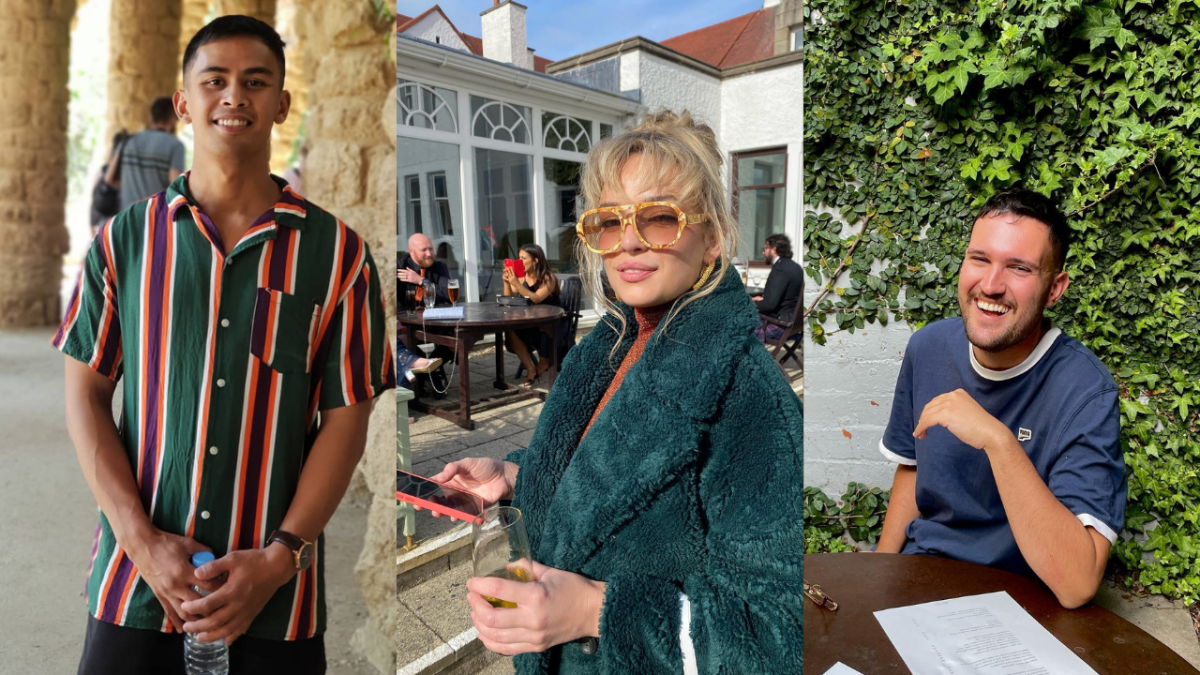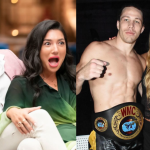
A lot of us like to think we could leave our lives and become reality TV stars overnight. But could we actually afford to?
Some of the country’s biggest personalities made their debut on shows such as The Bachelor and Married At First Sight. But they take months to film and there’s no guarantee when you sign up you’ll make it to the final episode or get a good edit.
Hundreds of people compete in MasterChef, The Voice and X-Factor every year. But only a handful of people go on to have legitimately livable careers from it.
How easy is it to pay your bills, rent or mortgage when you’re trying to get a solid root on national television? Can just about anyone take an undetermined amount of time off work or can only a financially privileged person compete on reality TV?
PEDESTRIAN.TV spoke to reality TV queen Abbie Chatfield, Australian Survivor‘s Jericho Malabonga and MasterChef contestants Conor Curran and Kyle* to find out.
They all said they didn’t spend a lot of money before filming their respective seasons.
Chatfield moved her stuff into her mum’s place before filming The Bachelor in 2019. It meant she didn’t have to pay rent.
Malabonga saved up some extra cash when he applied for season 2 of Australian Survivor in 2017. He later learned contestants were paid a daily rate to cover their costs outside the show.
But Curran and Kyle competed on reality TV after the COVID-19 pandemic began. The pair both lived through Melbourne’s several month-long lockdowns.
Curran was working a full-time job and lived in a share house. He saved up money purely because he wasn’t able to spend it going out. But Kyle was unemployed. He was made redundant when the pandemic first hit.
“I was on JobSeeker and was applying for jobs,” Kyle said.
“I started making it through a few rounds of casting and decided to invest my time in preparing for the show.”
View this post on Instagram
“The other concern was taking leave,” Malabonga added.
“Filming [for Survivor] was going to be two months if you make it to the finale. I only had about one month of annual leave so I requested leave without pay.
“It worked out for me in the end but imagine someone who took two months of leave without pay just to be voted out on day one. Or worse, imagine those who quit their job to get on the show only to fall short.”
Chatfield said her work gave her indefinite time off without leave when she was cast. She said she would not have gone on Bachie if they didn’t.
Chatfield also couldn’t disclose how much she earned per day on The Bachelor. But she said it was tax-free.
View this post on Instagram
She told PEDESTRIAN.TV she received a “huge tax return” that year because three months of her income in that financial year was non-taxable. The others said what they earned was enough to pay for their living expenses back home.
Kyle said the real financial cost of going on reality TV came directly after filming. Several contestants returned to their day jobs as they tried to chase their food dreams. But most of them were unemployed.
“Most of us were unemployed at least for a short period of time or were impacted by the lockdowns affecting the hospitality industry. This is something to also bear in mind.”
While Chatfield, Malabonga, Curran and Kyle all fostered new livable careers because of their time on reality TV, they discouraged people from quitting their jobs for a TV show competition.
“If it was my job or The Bachelor, I would have chosen my job,” Chatfield said.
“If you know you’ve got bills and debts you’re not on top of then of course that would be your first priority. Not [to] go on a show,” added Malabonga.
Kyle said the rags to riches storylines in wholesome reality TV shows such as MasterChef made it really tempting for everyday people to apply.
“In my cynical mind, [those types of edits] totally prey on the desires of working and middle-class people and sell them a fantasy of escaping the rigours of labour within our capitalist system,” he said.
“It’s really, really tempting when we see the success of people like Poh [Ling Yeow], Justine Schofield or Marion Grasby. There’s always that thought at the back of our minds that that could be us!”
It’s worth noting MasterChef isn’t the only show to use this storyline. It’s reality TV 101 and it gets us everytime.
But Kyle said a lot of factors in reality TV are out of your control. You don’t know how much airtime you’ll get, how far you make it in the competition or how you’ll be portrayed when you apply. So it can be a bit of a gamble.
View this post on Instagram
Conor Curran said the payoff for competing on MasterChef came long after the show.
“Only so many people from the show get enough exposure to make money from sponsorships so most of us really don’t make money in the short term,” Curran said.
“Essentially we went on to change our career and move into food. Hospitality isn’t the best paying career generally so I don’t think many of us went into the show to make it big money-wise.
“Sometimes things might not happen straight away,” Kyle added.
“It can be a bit of a slow burn, But MasterChef has produced a whole long line of alumni that have found success in food, whatever that looks like for them.”
*Some names have been changed to protect a source’s privacy.







